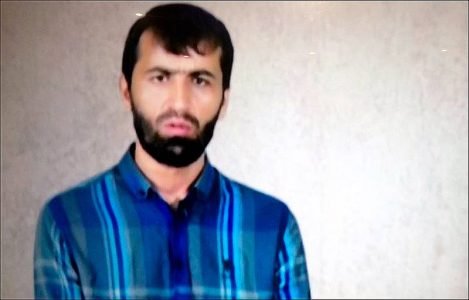
Tajik Islamic State terrorist and attack ringleader dies in prison
The leader and only surviving member of a group of Tajiks who killed four Western cyclists in the summer of 2018 has reportedly died in a Dushanbe prison.
Hussein Abdusamadov was serving a life sentence for his role in organizing and carrying out a horrific car and knife attack in support of the Islamic State. The July 29, 2018 attack — in which Americans Jay Austin and Lauren Geoghegan, Dutch citizen René Wokke, and Swiss citizen Markus Hummel were killed — was carried out by five Tajik citizens, according to the Tajik authorities.
In the aftermath of the shocking attack the authorities rushed to detain the five alleged attackers, who appeared to pledge allegiance to the Islamic State in a video filed before the attack and released shortly after. Four of the attackers died reportedly resisting arrest and Abdusamadov was captured alive on July 30.
Mansurjon Umarov, the deputy justice minister and head of the prison service, told media that the cause of Abdusamadov’s death was being investigated.
As RFE/RL reported, Umarov said, “Abdusamadov’s body has been sent for an autopsy to exclude torture or violence as his cause of death.”
Local media outlet Asia Plus, however, reported a bit more certainty to Umarov’s comments: “Abdusamadov died not because of torture.”
Umarov also reportedly commented that Abdusamadov did not have any serious illnesses but was “often sick.”
In June 2019, the New York Times released an interview with Abdusamadov conducted by Rukmini Callimachi. Callimachi has covered the Islamic State for the Times for several years and was the only journalist to be granted such an interview. Sitting, cuffed, between two masked Tajik security officers, Abdusamadov told Callimachi that he had no remorse and that he’d acted on behalf of the Islamic State. As Callimachi later tweeted, “I asked him if he’d have killed me if he could? He said yes.”
Abdusamadov’s radicalization began with Nosirhoja Ubaidov, known as Qori Nassir (also spelled Qori Nosir), a Tajik cleric, in the early 2000s. He dropped out of university in 2004 and left for Russia. Some years before the 2018 attack, Abdusamadov and his second wife traveled to Syria where Abdusamadov received training, fought with Islamic State forces, and recruited Russian speakers online. The Islamic State then sent him to organize an attack in Europe but he had trouble gaining access via Turkey and was told to go back to Tajikistan and attack “non-believers.”
Umarov, the Tajik official referenced above, reportedly said a report with the findings of the investigation into Abdusamadov’s death will be released soon. But it’s highly unlikely to shed real light on the death of the 35-year-old man given Dushanbe’s track record.
There could be more beneath the surface. Eurasianet reported today that a “well-placed source inside Tajikistan’s law enforcement system” told them “that authorities suspected that Abdusamadov had continued to recruit followers – possibly as many as 10 – inside prison. It is believed he might have been plotting an uprising in prison, the source said.”
Tajikistan’s prisons have seen several violent riots in the past few years (some pinned on the Islamic State by Tajik authorities). Meanwhile, the conditions at Tajik prisons have been subject to serious criticism for years. As Kamila Ibragimova wrote for Eurasianet last year, “Prisoners in Tajikistan die with alarming frequency, and they do so in painful and violent ways.”
Source: The Diplomat





